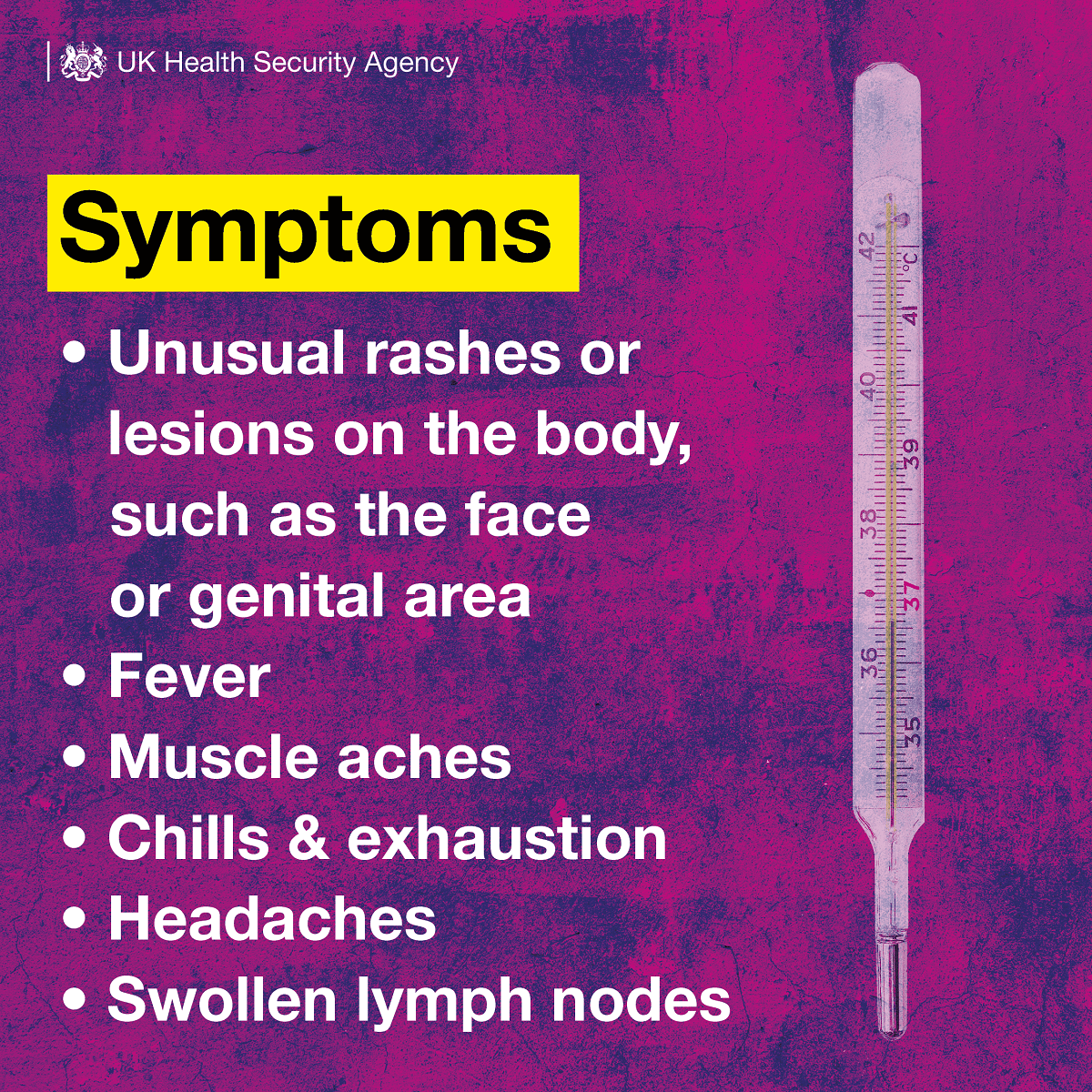Monkeypox Information

You may have heard about monkeypox in the news recently. But what is it, what are the symptoms and how can you access help and information?
Monkeypox is a rare illness caused by the monkeypox virus and one of the symptoms is a rash that is sometimes confused with chickenpox. It is usually associated with travel to Central or West Africa but cases have been occurring in England with no travel links.
Monkeypox can be spread when someone comes into close contact with an infected person. The virus can enter the body through broken skin, the respiratory tract or through the eyes, nose or mouth.
If you get infected with monkeypox, it usually takes between five and 21 days for the first symptoms to appear. Symptoms include fever, headache, muscle aches, backache, swollen lymph nodes, chills and exhaustion.
A rash can develop, often beginning on the face, then spreading to other parts of the body. The rash changes and goes through different stages - a bit like chicken pox - before finally forming a scab, which later falls off.
The virus can spread if there is close contact between people through:
· touching clothing, bedding or towels used by someone with the monkeypox rash
· touching monkeypox skin blisters or scabs
· the coughs or sneezes of a person with the monkeypox rash
Anyone with concerns that they could be infected should see a health professional but make contact with the clinic or surgery ahead of a visit. NHS 111 can also give advice.
UKHSA (UK Health Security Agency) is investigating the recent cases in England. A notable proportion of early cases detected have been in in gay, bisexual and other men who have sex with men and so UKHSA is urging this community in particular to be alert to any unusual rashes or lesions and to contact a sexual health service without delay.
UKHSA will post regular updates on gov.uk.
A UKHSA blog has been published here.
All updates from UKSA will be published via the rolling news story, where you’ll also find the latest case numbers.
More Articles
For further information about any of these news stories, please email the Communications Team

Taurus Annual Report 2024/25
Taurus Healthcare has published its Annual Report for 2024/25. The report reflects a year of transformation…

Herefordshire chosen to help shape the future of local health and care
We’re excited to share that Herefordshire has been selected as one of just 43 areas in England…

Herefordshire GP Leaders Spotlighted in National NHS Confederation Webinar
Dr Lauren Parry, Medical Director, and Dr Nigel Fraser, Chairman of Herefordshire General Practice…
